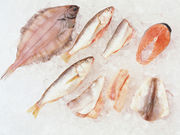Certain types of seafood may be linked to the disease, early research suggests
TUESDAY, Feb. 21, 2017 (HealthDay News) — Consumption of mercury-laden seafood is associated with risk of developing amyotrophic lateral sclerosis (ALS), according to a study scheduled for presentation at the upcoming annual meeting of the American Academy of Neurology, to be held from April 22 to 28 in Boston.
Researchers surveyed 294 individuals with ALS and 224 without the disease. Participants were asked about their seafood consumption and whether they caught it themselves or bought it. The researchers then estimated how much mercury the participants consumed annually. They also tested participants’ toenail clippings for mercury content.
The researchers found that 61 percent of those with ALS were in the top quarter of mercury consumption, compared to 44 percent of participants without ALS. Among regular seafood eaters, individuals in the top quarter of mercury consumption were at twice the risk of ALS. People with the highest mercury levels, based on toenail clippings and diet, also had twice the risk, the investigators found.
“For most people, eating fish is part of a healthy diet,” study author Elijah Stommel, M.D., Ph.D., of the Dartmouth College Geisel School of Medicine in Hanover, N.H., said in a news release from the American Academy of Neurology. “But questions remain about the possible impact of mercury in fish.”
Press Release
More Information
Copyright © 2017 HealthDay. All rights reserved.








